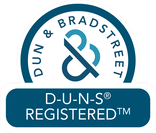 Decentralizing social media refers to creating a platform that operates on a decentralized network rather than a centralized server. This means that the platform is not controlled by a single entity or company, but instead is run by a network of users and nodes. The idea behind decentralizing social media is to create a more secure and user-friendly platform that provides users with greater control over their data and privacy. In a decentralized social media platform, users can own control, and create a "super app" that offers a wide range of features and services beyond traditional social media. This can include features such as e-commerce, payment systems, and content creation and distribution. The idea is to create an all-in-one platform that users can access for all their online needs, rather than relying on multiple separate apps and platforms. By decentralizing social media, the aim is to create a platform that is more equitable, secure, and user-centric. However, the implementation of decentralized social media is still in its early stages and there are many challenges to overcome, including issues related to scalability, user adoption, and security. Decentralizing social media has the potential to revolutionize the way people interact online by providing greater control, privacy, and security. The ultimate goal is to create a "super app" that offers a wide range of features and services while being equitable and secure for users. The Benefits of Decentralized Soical NetworkA decentralized social network can offer several benefits over traditional centralized social networks:
How Can You Join The Decentralized Social Network Movement An example of a decentralized social network is Mastodon. Mastodon is a free, open-source, decentralized alternative to traditional centralized social media platforms like Twitter. It operates on a decentralized network, meaning that the platform is not controlled by a single entity or company, but instead is run by a network of users and nodes. Users of Mastodon can create their own instances, or communities, with their own rules and moderation policies. This allows for a diverse range of experiences and perspectives, as well as greater user control over their online experiences. Mastodon also places a strong emphasis on privacy and security, as well as transparency and trust. The platform is designed to allow users to own and control their data, and to provide a transparent record of all transactions and data on the network. Mastodon is a decentralized social network that provides users with greater privacy, security, and control over their online experiences. What Are The Cons of Decentralized Social MediaWhile decentralized social networks have many benefits, there are also some potential drawbacks or challenges to consider:
Comments are closed.
|
Telephone |
Services |
HoursM-F: 6am - 6pm MST
|
Address1801 Broadway, 5th Floor
Denver, CO 80202 |
© 2024 Denver Marketing Solutions, LLC
Privacy Policy | Terms of Use | Data Opt Out | Request Your Information
Privacy Policy | Terms of Use | Data Opt Out | Request Your Information



 RSS Feed
RSS Feed

